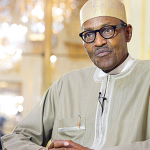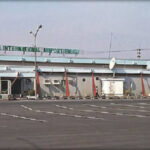According to the 2018 Global Terrorism Index, which measures the impact of terrorism across the world, Boko Haram has killed 1,254 people in 272 attacks in 2017, due to the increased activity of the terrorist group in Nigeria, and neighboring countries, after ‘a significant fall in activity between 2014 and 2016’.
The report says:
“It committed 40% more attacks and was responsible for 15% more deaths in 2017, carrying out 272 attacks and killing 1,254 people.”
Despite the group’s 2017 resurgence, attacks were slightly less successful as the average number of people killed per attack fell from 5.6 to 4.6.
The report further indicated that the terrorist group concentrated its activity in the Lake Chad region in 2017, with 81% of deaths taking place in Nigeria and 19% taking place in Cameroon and Niger, countries that share borders with Nigeria.
“This is up from 70% in 2016 and highlights the decreased reach of the organisation. Eighty-two per cent of deaths in Nigeria took place in the country’s Borno State, and another 17% occurred in Adamawa State.”
Of the 10 deadliest attacks Boko Haram committed in 2017, all were in Nigeria and nine were in the Borno State, the center of the insurgency.
Despite the high death toll, GTI noted that deaths committed by the group have gone down substantially since its peak in 2014 when it killed 6,612 people. This means deaths committed are down 83.2% since 2014.
The report indicated that the terrorist group carried out many of its attacks through uncommon tactics, including mass hostage-takings and the extensive use of children and women as suicide bombers.
“Nearly four in five bombings in 2016 were suicide bombings with one in five committed by women.”
The report noted that the drop is as a result of Nigeria’s Civilian Joint Task Force (CJTF) and international coalitions especially the Multinational Joint Task Force (MNJTF), a combined multinational formation involving Nigeria, Benin, Cameroon, Chad, and Niger.
“The sizeable drop in deaths and terror incidents since 2014 indicate the success of Nigeria’s Civilian Joint Task Force and international coalitions.”
Despite the military action against the group, the report noted that the Nigerian government has also struggled with negotiations and reintegration efforts regarding its long-term strategy to deal with Boko Haram and its associates.
The government’s counterterrorism response has also been interrupted by the emergence of other extremist groups, “most notably the Fulani herder extremists”.





![Kano Hisbah Destroys 'Holy Site' Where Pilgrims Drank Mud Water Believed To Bear Prophet’s Footprint [Video] 5 Kano Hisbah Destroys 'Holy Site' Where Pilgrims Drank Mud Water Believed To Bear Prophet’s Footprint [Video]](https://media.kanyidaily.com/2025/04/22145922/Screenshot_20250422_122348_Layout_1745321207-150x150.jpg)







![Two African Cardinals Among 15 Possible Replacements For Pope Francis [Full List] 21 Two African Cardinals Among 15 Possible Replacements For Pope Francis [Full List]](https://media.kanyidaily.com/2025/04/21181630/Successors-To-Pope-Francis-1-150x150.jpg)


